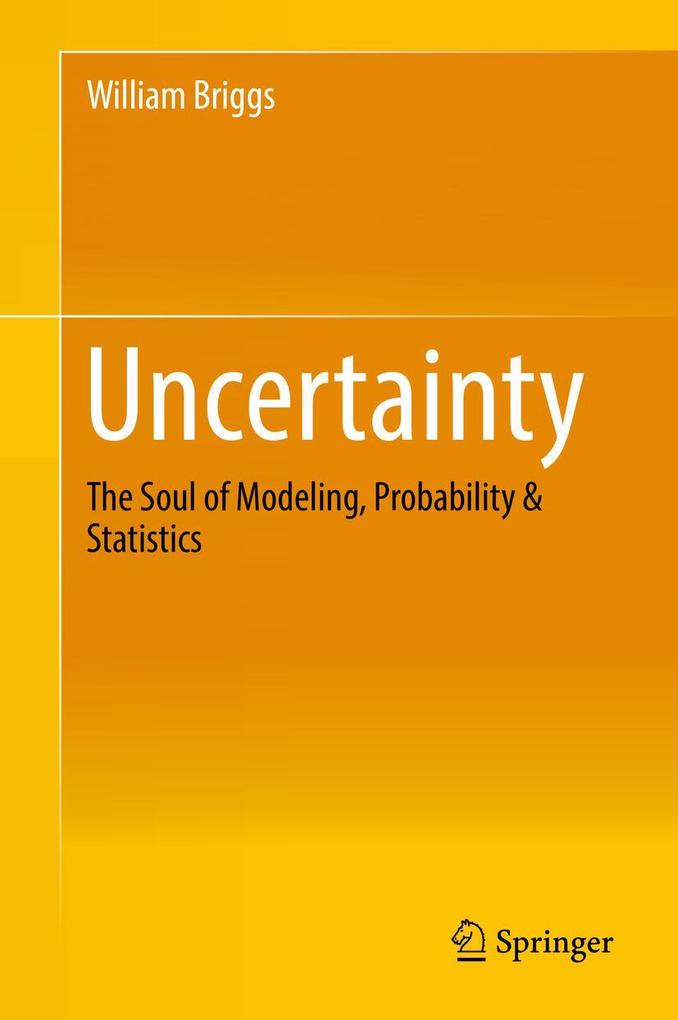Briggs, an adjunct professor of statistics at Cornell University, cautions his readers to carefully examine the uncertain reliability of such conclusions when these tools are used. His challenging premises are thoroughly supported by philosophical explanations as to why these traditional approaches need to be questioned. Briggs provides fully fleshed out reasoning, impressive support, precisely worded insight, and graphical illustrations, as appropriate, to justify his stand. Summing Up: Recommended. Upper-division undergraduates and above; faculty and professionals. (N. W. Schillow, Choice, Vol. 54 (6), February, 2017)
This is a book about probability and probabilistic reasoning. It is more philosophy than mathematics, but it does have mathematical content and it relies in some measure on mathematical reasoning. This book is worth a look by anyone who teaches probability and statistics. (William J. Satzer, MAA Reviews, August, 2016)
[This book] is not for sissies, true, but its clear-headed (i. e. , Aristotelian) approach to the subject of truth (which, in the end, is what exercises in probability and statistical analysis are all about, notwithstanding what they tell you in school) is refreshing: a long, cool drink of plain speaking about intellectual topics that, in these hot and humid days, is as enlivening as it is enlightening. (Roger Kimball, The New Criterion' s Critic' s Notebook, newcriterion. com, August, 2016)
This book has the potential to turn the world of evidence-based medicine upside down. It boldly asserts that with regard to everything having to do with evidence, we re doing it all wrong: probability, statistics, causality, modeling, deciding, communicating everything. the book is full of humor and a delight to read and re-read. (Jane M. Orient, Journal of American Physicians and Surgeons, Vol. 21 (3), 2016)






































